If you are like most homeowners, then you have probably dealt with clover at some point. Clover can be a real pain to get rid of, but with the right information and tools, it can be done. In this article, we will provide you with all the information you need to know about how to kill clover in St. Augustine grass. We will cover everything from the basics of clover identification to the best methods for eradicating it from your lawn. So read on and equip yourself with the knowledge you need to win the war against clover!
Table of Contents
Why Would You Want to Deal With Clovers in Your St. Augustine Grass Lawn?
Clovers are common weeds that can invade St. Augustine grass lawns, and they can be difficult to get rid of if left unmanaged. Clovers have shallow roots that allow them to spread quickly over an area, smothering the grass and competing for nutrients. If clover is allowed to take over a St. Augustine grass lawn, it will reduce the overall aesthetic appeal of your yard and potentially lead to serious damage in the long run.
Finally, clovers can make your lawn look simply unsightly. While some gardeners may find the look of a clover-filled lawn charming, most people prefer to have an even and lush green lawn that they can take pride in. Taking steps to kill clover in your St. Augustine grass is the best way to ensure that your lawn looks as beautiful as possible. [1], [2], [3], [4]
How to Kill Clovers in St. Augustine Grass
Luckily there are several ways to get rid of clovers in your St. Augustine grass lawn. The first step is to identify whether the clover is actually invading your lawn so you can decide on the best course of action. Clover can be identified by its round, three-leafed shape and white or pink flowers. Next, it’s time for treatment. In this section we will go over several different methods for killing clover in St. Augustine grass.
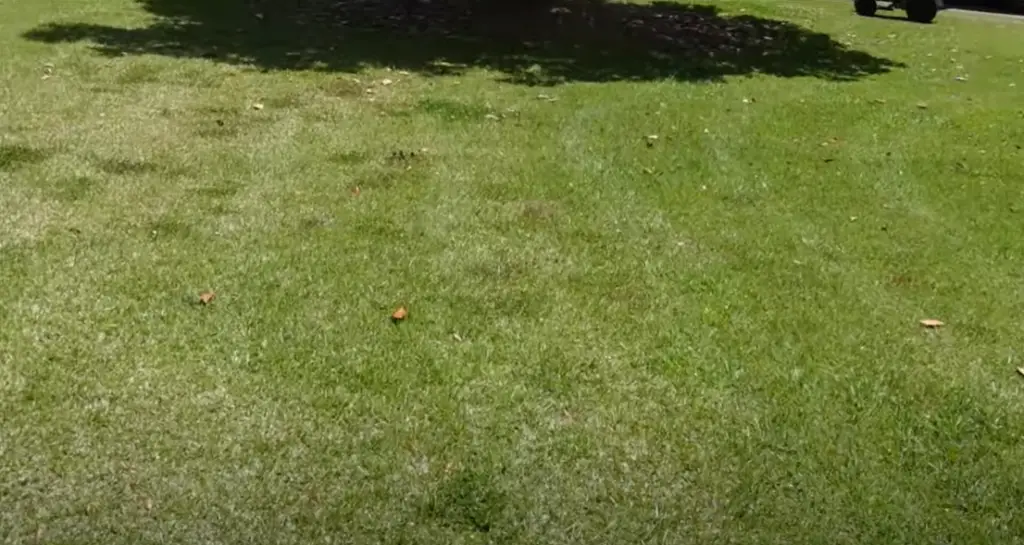
Pull it out manually
One of the easiest ways to get rid of clovers in St. Augustine grass is to manually pull them out. This method is best if you only have a few clovers scattered around your lawn, as it can be quite time consuming and tiring. Start by wetting the soil so that the roots are easier to remove. Then, using a garden trowel or weeding tool, dig down at least six inches and loosen the soil around them. You should then be able to easily pull up the entire clover plant with its root ball intact. If necessary, you can use an herbicide such as Roundup for spots that are difficult to reach with your hands.
Keep in mind that this method will only be effective if you can get the entire root ball out of the soil. If there are any clover roots left behind in the ground, they will quickly regrow and you’ll have to start all over again.
Cover it
Another option for killing clover in St. Augustine grass is to simply cover it with a thick layer of mulch or plastic sheeting.This will block out light and prevent the clover from getting the nutrients it needs to survive. Make sure you use at least 6 inches of coverage, as thinner layers won’t be as effective.
Just keep in mind that covering clover on your lawn will also prevent grass from growing, so you may want to consider other options if you’re looking to encourage your St. Augustine grass to grow in areas where clover has taken over.
Spray a vinegar solution
One of the easiest and most cost-effective ways to kill clover in St. Augustine grass is by spraying a vinegar solution directly onto the weeds. Vinegar is an acid that can burn the leaves of the clover and prevent them from growing any further. To make your own vinegar solution, simply mix white vinegar with salt in a spray bottle and shake it thoroughly before use. Then, spray the mixture directly onto the clovers until they are completely covered.
One thing to keep in mind is that vinegar is a non-selective herbicide, meaning it will kill any plant it touches. Be sure to temporarily cover any nearby plants or grass that you want to protect before spraying the vinegar solution.
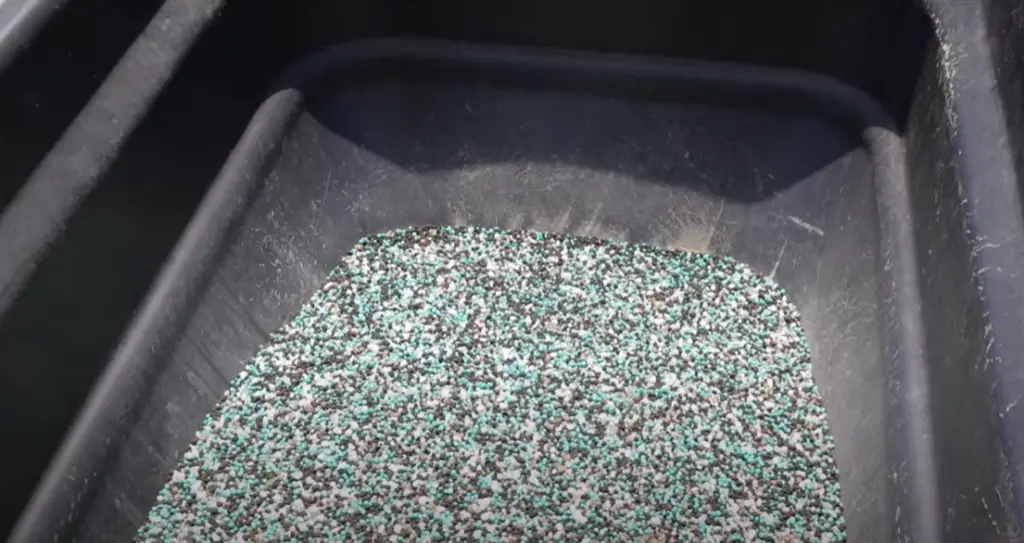
Use an organic herbicide
By far the most effective way to kill clover in St. Augustine grass is to use an organic herbicide. The most popular organic herbicide for clover is A.D.I.O.S. herbicide, which is made from a blend of natural oils and acids that destroy the clover’s cell structure. It’s safe to use around people and pets, and won’t harm grass or other plants when used properly. Just be sure to read all instructions before applying it to your lawn.
For best results, it’s important to apply the A.D.I.O.S. herbicide at the right time of year—usually early spring or late summer. If you repeat this process several times over a few weeks, you should notice a significant decrease in clover activity.
When using a herbicide, it’s important to keep the weather in mind. Herbicides should not be used in extreme cold or heat and rainfall can reduce their effectiveness. If there’s a chance of rain, you may need to delay your application until the weather is better.
No matter which method you choose, it is important to remember that killing clover in St. Augustine grass takes time and effort. With the right approach and commitment to regular maintenance, however, your lawn can eventually become clover-free! [1], [2], [3], [4]
Preventing Clovers in St. Augustine Grass
While it’s definitely possible to get rid of clover in an established St. Augustine lawn, the best way to prevent it from taking over is to take preventive measures. Here are some effective ways to keep clover out of your St. Augustine turf!
Water your lawn properly
Clover thrives in dry soil, so proper irrigation is essential for keeping your St. Augustine turf healthy and clover-free! Make sure that your lawn is getting the recommended amount of water for its type. If you’re not sure how much water your lawn needs, consider installing a soil moisture meter or irrigation system to help you stay on top of watering duties.
Underwatering is also a bad practice that can lead to clover growth. When the soil is too dry, it’s harder for grasses to get the nutrients they need, allowing weeds and clovers an easier time in taking over.
Mow grass high
Mowing your grass higher than usual can help discourage the growth of clover in St. Augustine lawns. As clover prefers low-cut, dry soil, raising the blades on your mower can make it harder for clover to take root and spread. To ensure optimal results, aim to keep your St. Augustine grass between 2 and 3 inches tall.
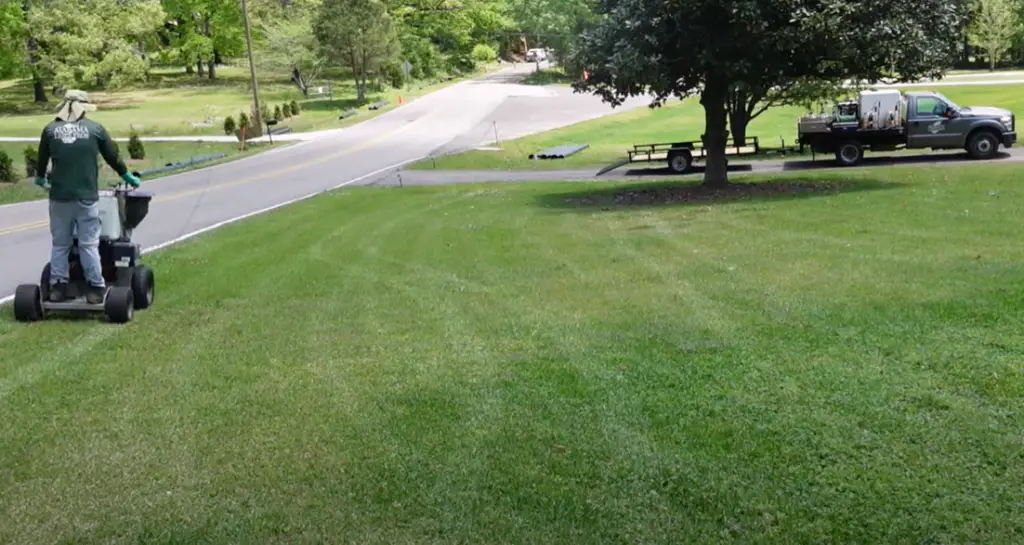
Fertilize regularly
Applying fertilizer to your St. Augustine turf will provide it with the essential nutrients it needs to form a strong, healthy root system. Healthy roots will enable your lawn to better compete with weeds such as clover by creating a dense cover that blocks out light and stops weed seeds from taking root in the soil.
For best effect, we recommend fertilizing your lawn every month during the growing season. This will ensure that your St. Augustine turf has enough nutrients to stay healthy and clover-free all year round! [1], [2], [3]
FAQ
Will clover eventually take over grass?
Yes, clover will eventually take over grass if left unchecked. Because it is a low-growing weed that spreads rapidly through its creeping stems, clover can quickly outpace the growth of turfgrass and other desired plants in your lawn. It also produces large amounts of seed heads which further spread the plant and make it more difficult to remove from your lawn once established. This is why controlling clover in St. Augustine grass early on is important for maintaining a healthy landscape.
Should I get rid of clover in st. Augustine grass?
Yes, you should get rid of clover in St. Augustine grass to maintain healthy, lush turf. Clover is an aggressive weed that competes with the grass for resources including sunlight and water. As it grows, it can choke out or crowd out the grass which decreases its vigor and health. If left untreated, clover can spread throughout the area leading to a decrease in overall lawn quality.
What will kill clover but not the lawn?
It’s incredibly hard to find a weed killer that will kill clover without killing the St. Augustine grass. The best solution is to use a manual hand picking process to remove the clover from the lawn.
Natural herbicides like A.D.I.O.S. can be used to kill just the clover. This type of weed killer is more environmentally friendly and won’t harm the St. Augustine grass in any way.
If nothing helps, you can also use a broadleaf weed killer, such as MCCP, which will kill the clover without damaging the St. Augustine grass. However, if you choose to use this method, you should take great care to apply it correctly and only treat small patches at a time.
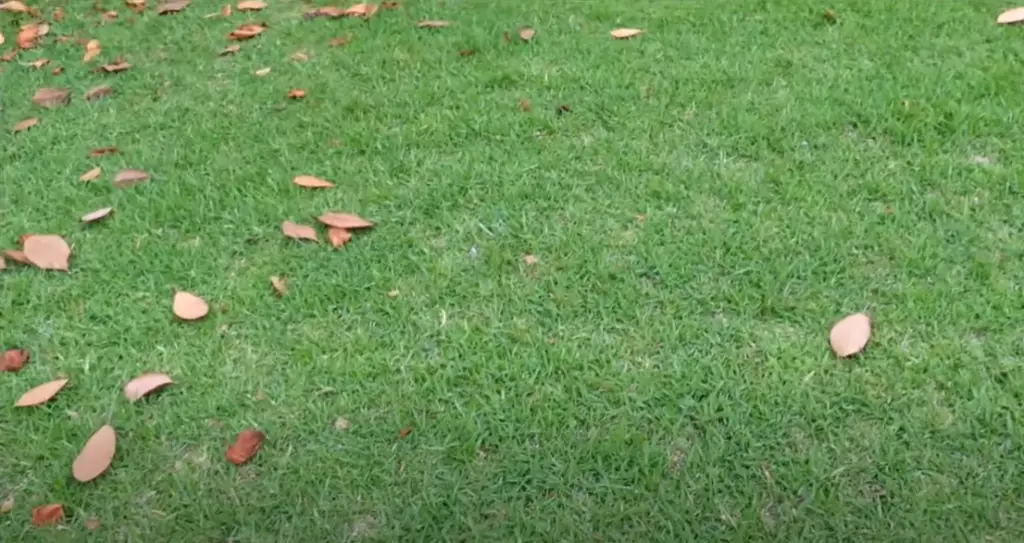
What is the fastest way to get rid of clover?
The fastest way to get rid of clover in St. Augustine grass is to apply a post-emergent herbicide. Post-emergent herbicides are designed to target and kill actively growing weeds such as clover, dandelions, and crabgrass.
It’s important to make sure you follow the instructions on the product label exactly, including when and how much of the product should be applied. Make sure you apply it in late spring or early summer when clover is actively growing, but avoid applying it when temperatures are above 90 degrees F or during periods of drought.
If you’re looking for a more natural solution, try using ground covers or pulling the clover out by hand. Both of these methods are less effective than using an herbicide but are still worth considering.
What kills weeds but not St Augustine?
It’s very hard to find a weed killer that won’t damage St Augustine grass, and there is no single solution for killing clover in this type of lawn. The best way to get rid of clover is to first identify the type of clover present in your lawn, then take the appropriate steps to eliminate it.
Manual removal is by far the safest method for your st Augustine grass, but it’s also the most labor-intensive. If you have a small infestation, you can try digging out the weeds by hand and removing them from your lawn.
When manual removal is impractical, chemical herbicides may be necessary to control clover. MCCP (monosodium, cyanurate, calcium phosphate) and glyphosate are two of the most commonly used herbicides for this purpose. Just keep in mind that using chemical control can have a negative impact on the environment, so always use them with caution and follow the manufacturer’s instructions carefully.
Useful Video: How to Kill Clovers in St. Augustine Grass
Conclusion
St. Augustine grass lawns are one of the most popular grass varieties in the United States. However, they are also prone to being taken over by clover if left unmanaged. To keep your lawn looking lush and green, it is important to take steps to eliminate clover growth quickly when you first notice it.
In this article, we discussed various methods of how to kill clover in St. Augustine grass. These include using herbicides, vinegar, and manual removal techniques. While herbicides are the most effective way to get rid of clover, they come with a certain level of risk to your lawn and environment. Therefore, it is important that you use the right product for your specific type of grass and follow all safety instructions provided by the manufacturer before applying any chemical-based treatments.
Additionally, if you want to take preventative measures against future clover outbreaks, be sure to regularly mow your lawn at a slightly higher height than recommended and keep an eye out for signs of disease or pest infestations.
By following these tips on how to kill clover in St. Augustine grass, you can have a healthy and beautiful lawn year-round! Good luck!
References:
- https://aggie-horticulture.tamu.edu/plantanswers/turf/clover.html
- https://www.ehow.com/how_12051252_kill-clovers-st-augustine-grass.html
- https://lawnlove.com/blog/why-clover-takes-over-lawns/
- https://www.thisoldhouse.com/lawns/reviews/how-to-get-rid-of-clover-in-your-lawn-naturally

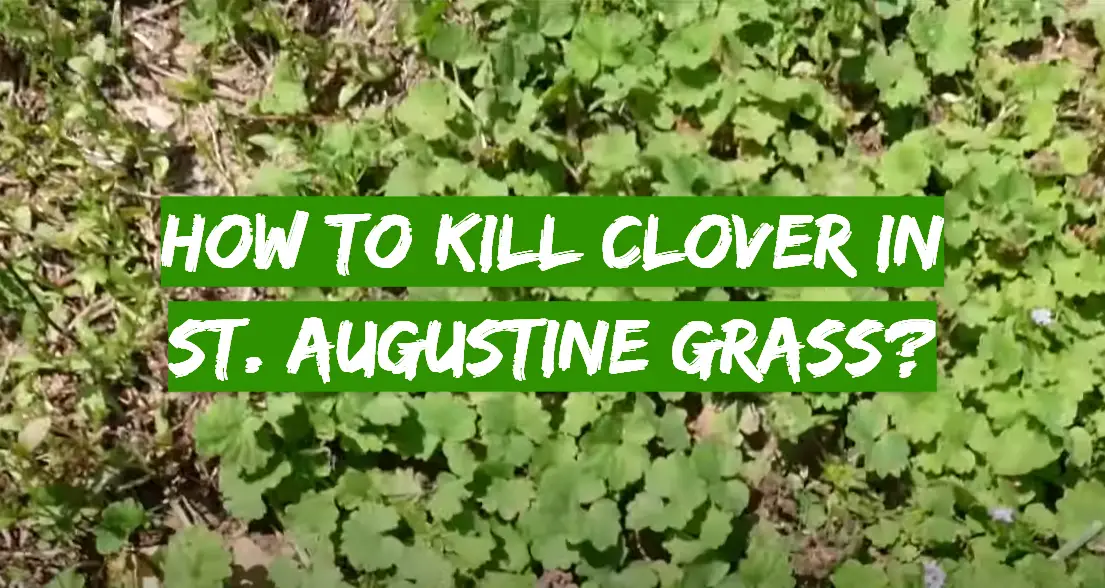

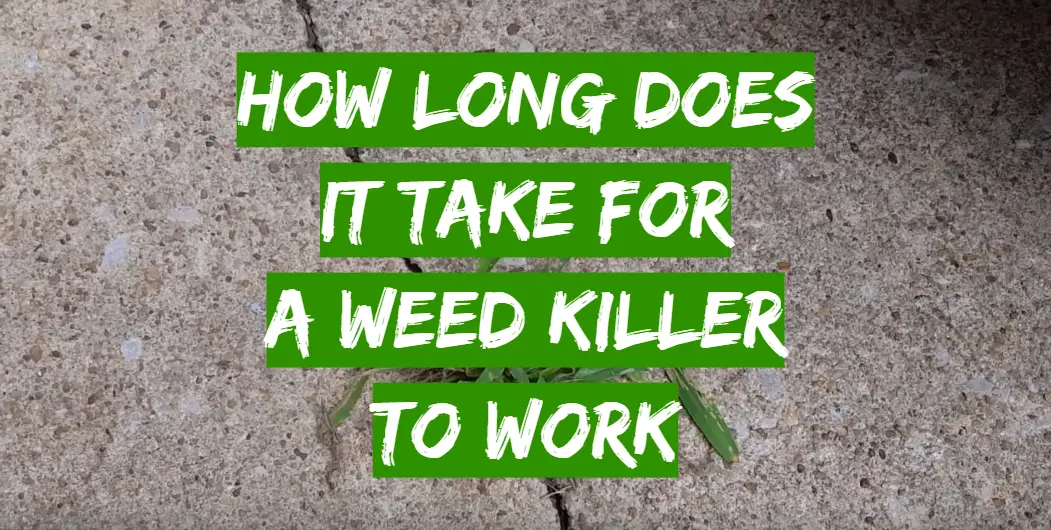
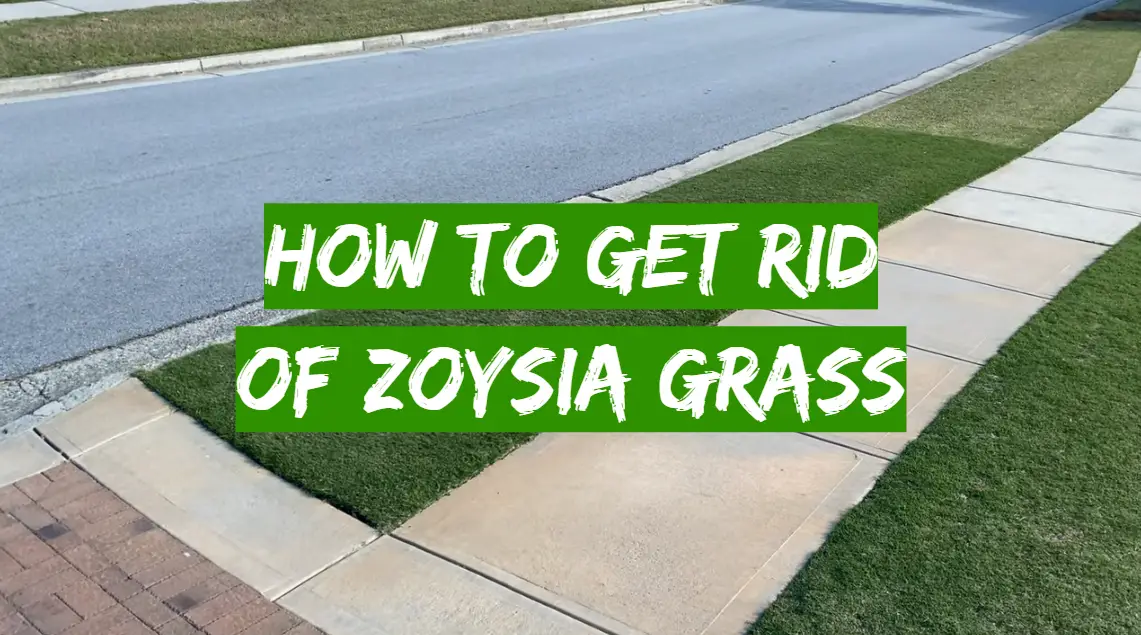
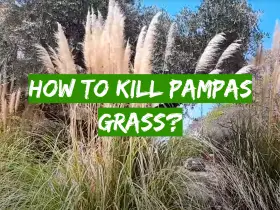
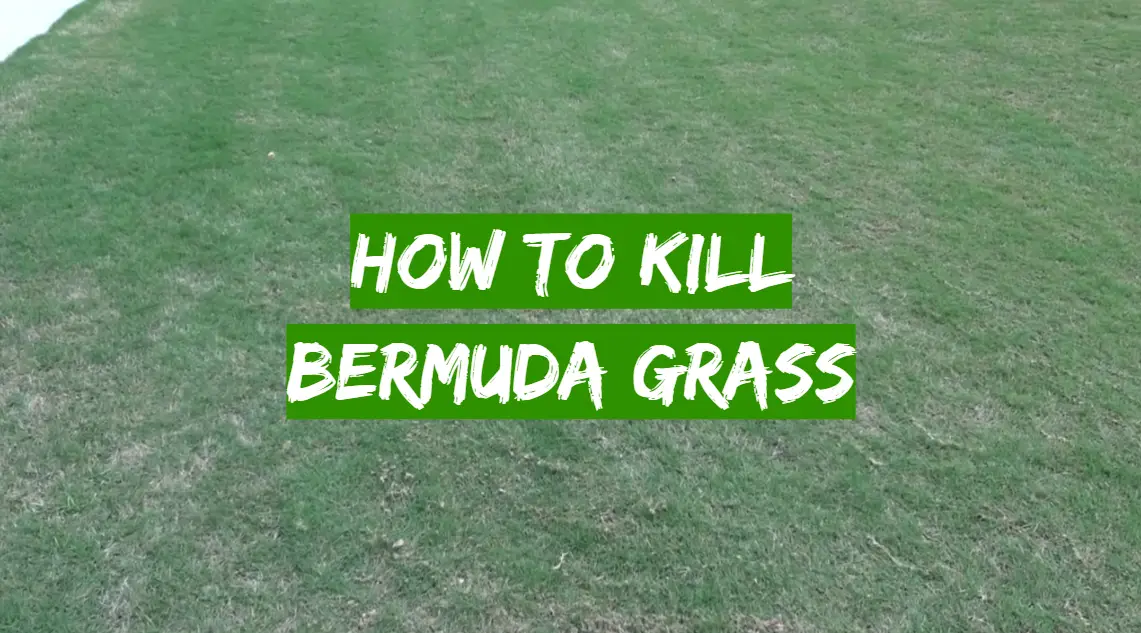
Leave a Reply
View Comments